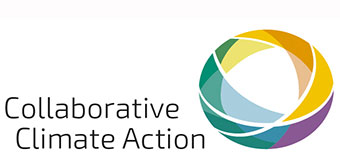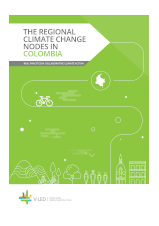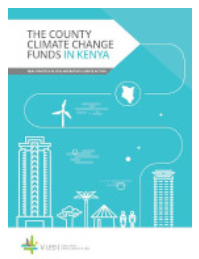Case Studies on Collaborative Climate Action
adelphi – Vertical Integration and Learning for Low-Emission Development (V-LED) Project
The V-LED Real Practice series responds to the growing demand for real-life examples and practical knowledge about multi-level climate governance. The series answers the question: How have local and national governments addressed challenges in their collaborative climate actions? By delving into the details of practical initiatives, examining the challenges they face and highlighting key lessons for replication, the series extends knowledge to policy makers and implementers in order to improve collaborative action among local, national and global actors.
Colombia’s Regional Climate Change Nodes are shaping integrated climate responses by different levels of government.
Colombia’s Regional Climate Change Nodes are the country’s flagship regional governance mechanisms to deliver climate change policy that integrates different levels of government. Currently, each of the nine Nodes is at a unique stage of development. While the Nodes have great potential to deliver on the promise to advance concerted climate solutions by different government levels and actors, they are currently not achieving a transformative impact due to a number of barriers. This study offers insight into the Nodes’ practical experiences, lessons and recommendations.
Kenya has pioneered a climate change governance mechanism to increase finance for local climate action.
The Kenyan County Climate Change Fund (CCCF) consists of climate legislation enacted by county governments and a county-controlled fund that finances climate projects identified and prioritised by local communities. Originally designed by a multi-stakeholder coalition with the objectives of increasing capacity for local development planning and channelling climate finance to some of Kenya’s most vulnerable regions, the CCCF evolved to encompass mitigation measures and effectively influenced national climate policy. The CCCFs are now a key component in a comprehensive national planning and financing framework that strengthens capacity and channels finance to community-driven climate action priorities. This study presents the very practical elements that can make this strategy successful.
Ormoc City has established a collaborative climate planning process that engages key actors.
Local governments in the Philippines use their local climate action plans—and the planning and coordination processes behind them—as a collaborative tool to drive transformative actions on the ground. Despite the existence of an elaborate local planning scheme that municipalities are required to follow, a siloed approach continues to be the norm in several areas of the country, which represents a major challenge to effective and collaborative climate action planning at the local level. Ormoc City has turned things around. The city uses its climate planning process as a means for achieving improved governance, honed technical capacity, and participatory citizen engagement. This study gives insight into how exactly Ormoc is doing it.
South Africa has pioneered a support programme to enable provinces and municipalities across the country to better respond to climate change.
South Africa’s cities and towns are crucial to changing the country’s emissions profile and building a low-carbon, climate-resilient economy. The national government has pioneered a large-scale capacity-building programme that helps provinces and municipalities across the country better respond to climate change. Led by the South African Department of Environment, Forestry and Fisheries (DEFF) and implemented by a multi-stakeholder coalition, the Local Government Climate Change Support Programme (LGCCSP) is a hands-on demonstration of multi-level climate collaboration and has co-produced knowledge that continues to shape South Africa’s climate policy framework. This study gives insight into how the LGCCSP works in practice.
In addition to the case studies, the V-LED project has also produced country studies on multi-level climate governance, a projects experience report and a policy brief. The publications can be found here: Vertical Integration and Learning for Low-Emission Development.





